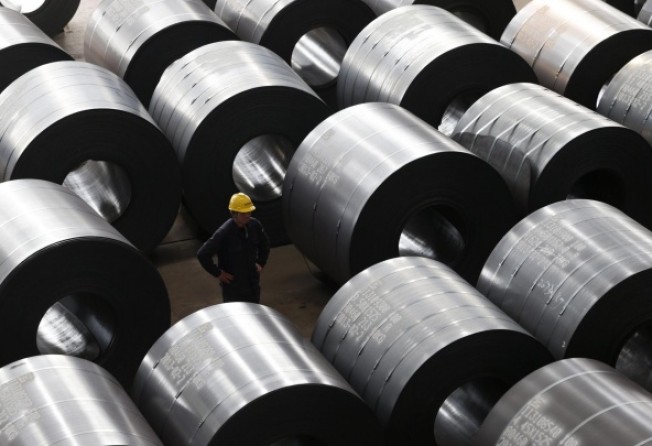
No relief from yuan pain for exporters
Regulators unlikely to hold back the currency's rise to help boost exports, although the end of quantitative easing may come to firms' rescue

The mainland's struggling exporters will look in vain to currency regulators to help them survive a prolonged downturn in demand from their major foreign markets.

More importantly, the yuan's appreciation since last autumn may reflect policymakers' determination to allow market forces to have more influence in deciding the exchange rate, analysts believe. This means exporters will face greater pressure to upgrade their products and look for customers from emerging markets to substitute for shrinking demand from Western clients.
The situation looks particularly worrying after the weekend's data showed export growth slumped to just 1 per cent last month after regulators cracked down on cross-border hedging through over-invoicing and "round-tripping", a method used to channel hot money into the mainland by moving goods into and out of Hong Kong and bonded areas in fake deals.
Economists Liu Ligang and Zhou Hao at ANZ bank said: "China's export sector is losing competitiveness because of a strong yuan and rising trade protectionism."
The yuan had appreciated by almost 20 per cent against the yen this year, partly because of the quantitative easing in Japan, while other regional currencies had also depreciated following the weakness of the yen and the strong US dollar, ANZ said.
"We believe China's loss of competitiveness relatively to Asean (the Association of Southeast Asian Nations) and Japan will gradually show up in China's export data in the following months, which will have dire consequences for the already weak job markets," the bank said.
Liu Xiu, the general secretary of the Guangdong Furniture Chamber of Commerce, said the yuan's recent gains had caused industry exporters' profits to drop by 20 per cent. "Domestic companies are wary of signing new export orders because they aren't sure to what extent the yuan will rise further," he said.
Profits were also hurt by rising raw material and labour costs.
However, the central bank has shown greater reluctance to stem capital inflows through intervention in the foreign exchange market. Shen Jianguang, the chief greater China economist at Mizuho Securities, said: "Exporters must transform their growth model, improve the technological content of their products, and also develop new customers in the emerging markets."
However, Shen said: "Transformation is always a painful process, requiring companies to upgrade technologies, change operating methods, improve management and expand overseas sales channels."
The transformation in China had begun, but slowly, he said. Most mainland exporters have struggled in competing with players from developed nations in high-end markets.
Diao Li, the head of economic operations for the China Iron & Steel Association, said the mainland steel market was full of rampant price competition and needed to be regulated further. But provincial and municipal authorities were reluctant to give up their shares of the low-end markets to undertake often costly and risky industrial upgrading. "It'll take long for the industry to complete structural adjustments," he said.
For struggling exporters the good news may be that the yuan's appreciation may not last too long, given that western countries may gradually withdraw their quantitative easing programmes, which will narrow their interest rate margins with China and reduce incentives for hot money inflows.
Societe Generale's China economist, Yao Wei, said there was a good chance of capital outflows and yuan depreciation in the second half on anticipation of a possible tapering of the quantitative easing from the US Federal Reserve in September.
That might take off some pressures for Chinese exporters, but only to a limited extent.